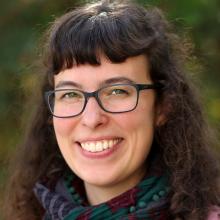UniGR is now a full TEIN member
UniGR is now a full TEIN member
At this year's annual assembly of the Transfrontier Euro-Institute Network (TEIN), the University of the Greater Region (UniGR) with its Interdisciplinary Center of Expertise UniGR-Center for Border Studies (UniGR-CBS) was appointed full member of the European network. The UniGR-CBS took this opportunity to talk to the TEIN coordinator, Anne Thevenet, about the work of the network.
Ms. Thevenet, can you say in a few words what the Transfrontier Euro-Institute Network is?
The Transfrontier Euro-Institut Network (TEIN) was founded in 2010 to bring together universities and research institutes which want to strengthen the competences of (future) cross-border actors. Even today, TEIN forms a platform for the exchange and development of new pedagogical products, but also of research projects. With its work, TEIN also wants to draw attention to cross-border issues on a regional, national and European level.
How to become a member of TEIN?
The members of TEIN have to sign a charter, which sets out the organization of the network and explains who can become a full member. These are mainly institutions that are active in cross-border education, training, consulting and research and want to support cross-border projects or build capacities of cross-border actors. In the annex of our charter there is also a list of quality criteria that gives guidance to TEIN members. These criteria include, for example, that TEIN members consider and respect the languages and cultures on all sides of the border(s).
Today, the UniGR with its interdisciplinary Center of Expertise UniGR-CBS became a regular member – what does TEIN expect from this?
The UniGR with its seven universities and colleges from four countries is actually a "natural" partner for TEIN. We are very pleased that after a "test phase" as an associated member, the UniGR is now a full member. The UniGR-CBS now provides us with further competent researchers and contact persons from different disciplines who will develop projects with other TEIN members. And somehow the UniGR-CBS is also experimenting on a small scale with what TEIN is trying to develop on a European level - and also for this reason, the collaboration will continue to be very fruitful.
Do you already have future collaborations planned?
Actually, we didn't wait for the official signature to start working together! In fact, the opposite is true. In the past, some TEIN members were already able to work as guest professors at the partner universities of the UniGR-CBS. Furthermore, we are very happy that we were able to organize this year's TEIN annual conference together with the UniGR-CBS and especially with the working group "Border Temporalities". I am sure that with this kind of strong start we have the best chance for a good and productive partnership - and there will certainly be no lack of common ideas for future projects!
How would you characterize the UniGR-CBS?
Diverse, versatile, competent.
Thank you very much for the interview.
The scientific representatives of the UniGR in the TEIN network are Karina Pallagst and Beate Caesar (UniGR-Center for Border Studies).


